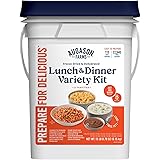Table of Contents
- Learning from Experienced Survivalists
- Outdoor Survival Courses
- Books and Online Resources
- Local Community Workshops
Learning from Experienced Survivalists
Identifying Reputable Mentors
Finding the right mentor can be a game-changer. I recommend looking for someone with a proven track record in survival situations. Check their background and perhaps get some word-of-mouth recommendations.
It’s crucial to verify their credentials and experience. Someone who has survived various scenarios is more likely to impart practical knowledge.
Don’t be shy to ask questions or request testimonials from previous students. This helps build trust and ensures you’re learning from the best.
One-on-One Training Sessions
Personal training sessions are incredibly effective. You get tailored advice and hands-on experience. Schedule weekly or bi-weekly sessions to keep the information fresh.
During these sessions, focus on essential skills like shelter building, fire starting, and foraging. These are foundational skills that will serve you well.
Ask your mentor to simulate real-life scenarios. This makes the learning process more dynamic and prepares you for actual situations.
Joining Survivalist Groups
Connecting with a survivalist group can broaden your learning horizon. These groups usually have seasoned members who can offer diverse perspectives and tips.
Attend their regular meetings and participate in group training exercises. This is a fantastic way to practice what you’ve learned in a controlled environment.
== > What if ... Get a FREE Subscription to PREPARE
Begin building relationships within the group. Having a community you can trust is invaluable, especially when it comes to sharing resources and knowledge.
Outdoor Survival Courses
Choosing the Right Course
Look for courses that cover a wide range of skills. Basic ones should include first-aid, navigation, and emergency preparation.
Make sure the instructors are certified and have real-world experience. Check reviews or ask for references to gauge the course’s quality.
Consider your current skill level. Some courses are designed for beginners, while others are more advanced. Pick one that matches your needs.
Hands-On Training
Practical exercises are the backbone of any good survival course. You’ll learn much more when you’re actively engaging with the material.
Practice setting up shelters, purifying water, and identifying edible plants. These are all crucial skills for surviving in the wild.
Document your progress. Keeping a journal will help you track what you’ve learned and highlight areas that need improvement.
Group Dynamics
Working in groups can mimic real-life survival scenarios. You’ll learn teamwork, communication, and how to utilize each person’s strengths.
Group activities often present challenges that require collective problem-solving, which enhances your adaptability.
Forge strong bonds with your fellow trainees. These relationships can be a great support network both during and after the course.
Books and Online Resources
Recommended Books
There are countless books written by survival experts. A few of my favorites include “Bushcraft 101” by Dave Canterbury and “The SAS Survival Handbook” by John ‘Lofty’ Wiseman.
Books provide detailed instructions that you can refer back to whenever needed. They’re great for theoretical knowledge.
Complement your reading with practical exercises from the books. This ensures you’re not just passively consuming information.
Online Tutorials and Videos
Platforms like YouTube have a wealth of survival content. Channels like “Survival Lilly” and “The Urban Prepper” offer hands-on tutorials done by experienced survivalists.
Online videos can be particularly useful for visual learners. Seeing someone perform a task can often make it easier to replicate.
Look for tutorials with high engagement and positive reviews. This usually indicates the quality of the content.
Joining Online Communities
Forums like Reddit and specialized survival sites are great for sharing tips and asking questions. The community aspect can accelerate your learning.
Participate in discussions and don’t hesitate to ask for advice. Experienced members are often willing to share their insights.
Online communities can provide immediate feedback, which is invaluable when you’re trying to refine your skills.
Local Community Workshops
Finding Workshops Near You
Check out local community centers or outdoor stores for upcoming workshops. These sessions often cover a wide array of survival skills.
Look for workshops by experienced professionals. Many times, these instructors have a wealth of experience and practical knowledge.
Attend different workshops over time to build a comprehensive skill set. Each one will offer unique insights and techniques.
Building Local Networks
Workshops are perfect for networking. You’ll meet people who share your interests and can offer support or partnership in survival endeavors.
Exchange contact information and stay in touch. These connections can be invaluable during an emergency or disaster scenario.
Consider forming a local group that meets regularly to practice and share new skills. This continual engagement keeps your skills sharp.
Interactive Learning
Workshops often use interactive methods like live demonstrations and role-playing. This keeps the learning engaging and practical.
Take notes and ask questions during these interactive sessions. The more engaged you are, the more you’ll learn.
Apply what you learn immediately. Practicing a new skill right after learning it helps in retaining the information longer.
FAQ
1. How can I find reputable survivalists to learn from?
Start by asking for recommendations from your network or looking for reviews online. Ensure they have a proven track record and verified credentials.
2. What should I expect from an outdoor survival course?
You should expect a combination of theoretical and hands-on training. The course should cover essential skills such as first-aid, navigation, and emergency preparation.
3. Are books and online resources enough to learn survival skills?
While they provide valuable information, practical experience is crucial. Pair them with hands-on practice and possibly in-person training to effectively learn survival skills.
4. What are the benefits of attending local community workshops?
Local workshops offer hands-on training and interactive learning opportunities. They also help you network with like-minded individuals and experts in your area.






